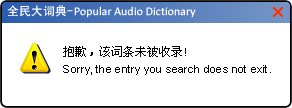罪状【zuì zhuàng】
charges in an indictment; facts about a crime
[名]犯罪的实际情况;所举犯罪的情状
 我们已经查明了他的所有罪状。 We have found out all the facts about his crime.
醉【zuì】
1. be drunk; be intoxicated; be tipsy 2. be fascinated; be bent on 3. liquor-saturated
[动]1、因喝酒过量而神志不清 2、沉酣入迷;爱好 3、用酒炮制
 你喝醉了,让我开车送你回家吧。 I will drive you home since you are drunk.
 他退休后,醉心于书法创作。 He is deeply engrossed in calligraphy after his retirement.
 醉虾是中国的一道名菜。 Liquor-saturated Shrimps is a famous course of Chinese food.
醉生梦死【zuì shēng mèng sǐ】
live as if intoxicated or dreaming; lead a befuddled life as if drunk or dreaming; dream away one's time
[成]像喝醉了酒或做梦似的;糊里糊涂地活着
 自从他妻子离世后,他过着醉生梦死的生活。 Since his wife’s death, he has led a befuddled life.
|
尊敬【zūn jìng】
respect; revere; esteem; honor; look up to; worship
[动]尊崇敬重
 尊敬老人是中华民族的传统美德。 Respecting the old is a traditional virtue of Chinese people.
尊严【zūn yán】
dignity; reverence; honor
[名]尊贵的地位和身份
 一个人的真正尊严在于他的品格,而非他的财富。 The real dignity of a man lies in what he is, not in what he has.
尊重【zūn zhòng】
defer to; esteem; respect
[动]敬重;重视并严肃对待
 请尊重我的发言,不要窃窃私语。 Please respect my speech and don't whisper.
|
遵守【zūn shǒu】
abide by; observe; keep; comply with; obey (rules, laws, orders)
[动]依照规定做;不违背
 遵守法律法规是每个公民应尽的义务。 Abiding by the laws and regulations is the obligation of every citizen.
遵循【zūn xún】
follow; keep to; abide by; comply with; observe
[动]遵从;依照
 我们要遵循实事求是的原则。 We should follow the principle of seeking truth.
遵照【zūn zhào】
comply with; conform to; in accordance with; follow
[动]按照;依照
 很抱歉不能遵照您的建议办事。 I regret to say it's not possible to comply with your suggestions.
|
